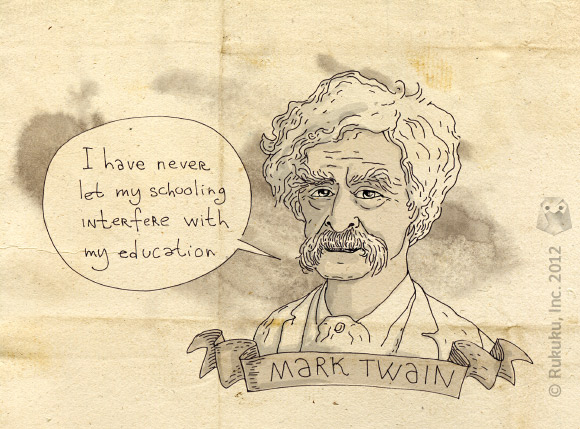Mark Twain once famously said the above words in reference to his experience in the American school system.
That was over a century ago. Would he still have said this in 2012?
The likely (and unfortunate) answer to that question is yes. The principles underlying the American education system have not changed significantly since Mark Twain’s time. We remain attached to a philosophy that:
• Values following directions over taking initiative
• Foists ideologically-laced information upon students without tolerating discussion or questioning
• Neglects young peoples’ natural desire to learn actively
• Prevents students, parents, and stakeholders from having a say in what should be taught
Granted, the United States is certainly not alone. That’s nothing to be proud of, though: along with most of the rest of the world, our students languish in a system whose basic attitude is stuck firmly in the 19th century.
Online technology holds the promise to be a catalyst for change in the thinking of the education community. Check us out on Friday for a discussion of how we can lead the charge in changing how we learn.


